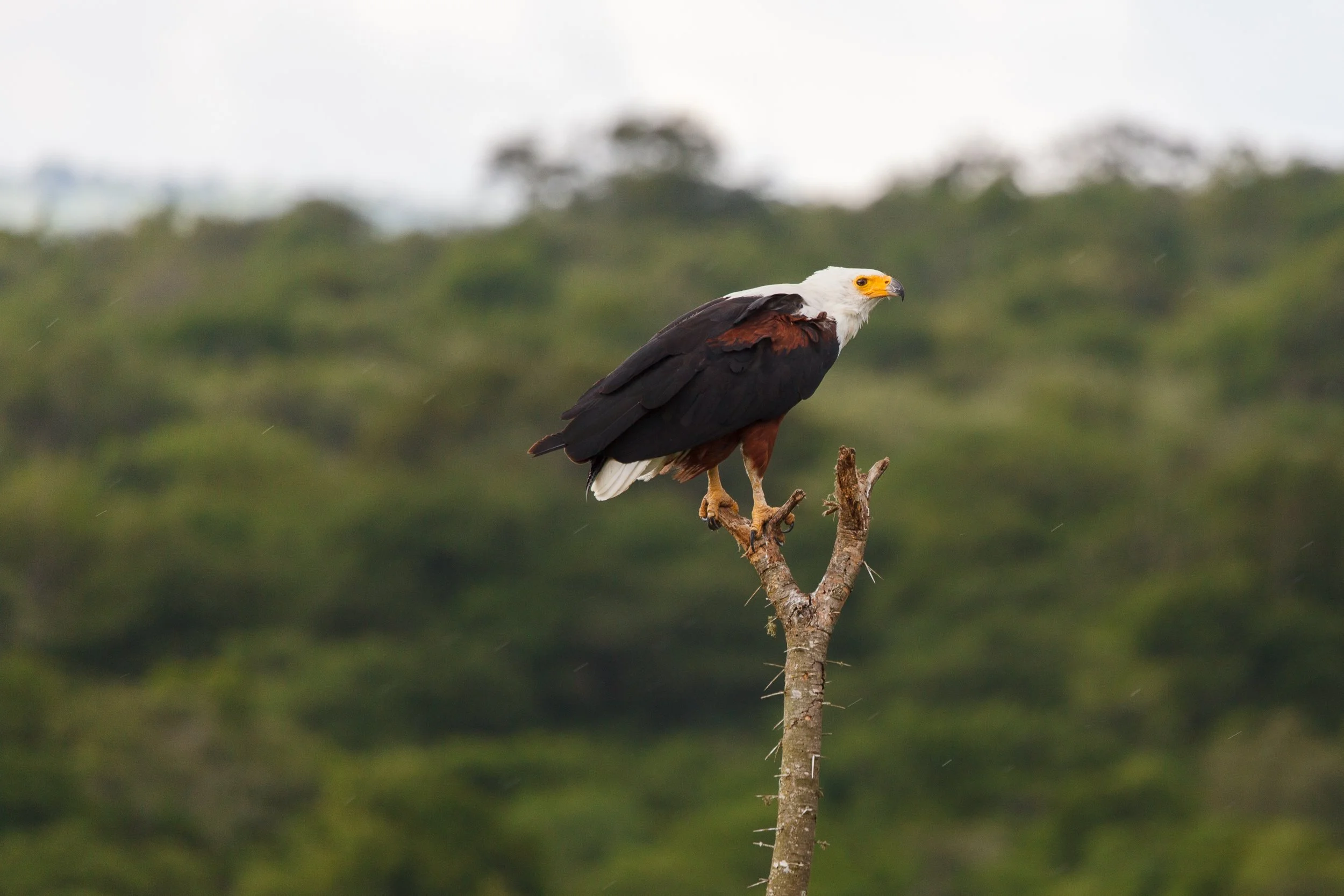Akagera National Park
Last week I was lucky enough to be in beautiful Rwanda, for a conference. I was even luckier to have the chance to take a day trip to Akagera National Park in the country’s east. Our guide picked me and three others up early from our hotel in Kigali, in an impressive and enormous land rover which promptly broke down. While we waited by the road in the pre-dawn darkness, telling hopeful taxi drivers we didn’t need a lift, our guide quickly organised a complicated car swap which sourced us a different land rover we could take instead, and in no time we were on the way.
The drive to the park took about three hours and went through rolling countryside covered with banana trees and rice paddies. The highway was thronged with people walking and riding pushbikes, many laden with goods for market — there were bikes covered in bananas and people carrying heavy loads on their heads. In little towns children waved at us (and were delighted when I waved back) and people were outside pumping water, sweeping, chatting, watching the world go by.
We started seeing incredible wildlife almost the moment we crossed the border into the park. All told we spent about seven hours in the park and covered about 120 km on its maze of dirt roads. The roof of the off-roader could open up to allow us to stand and see out without any glass between us and the animals. All told we saw elephant, buffalo, water buck, crocodiles, an incredible number of hippos, innumerable impala, giraffe, topi, baboons, monkeys, zebra, warthog, and a whole slew of amazing birds. As we were about to leave the park, two white rhinos trundled out of the brush and crossed the road in front of us, just capping off an incredible day.
Here are some photos from a thrilling day in Akagera.
Woodland kingfishers.
Village weaver.
Long-crested eagle.
Impala.
Yellow-billed oxpeckers pecking a giraffe.
A bare-faced go-away bird.
White-faced whistling-ducks and a hadada ibis.
An African fish eagle.
African buffalo.
Brown snake eagle.
White rhino.
Barn swallows.























